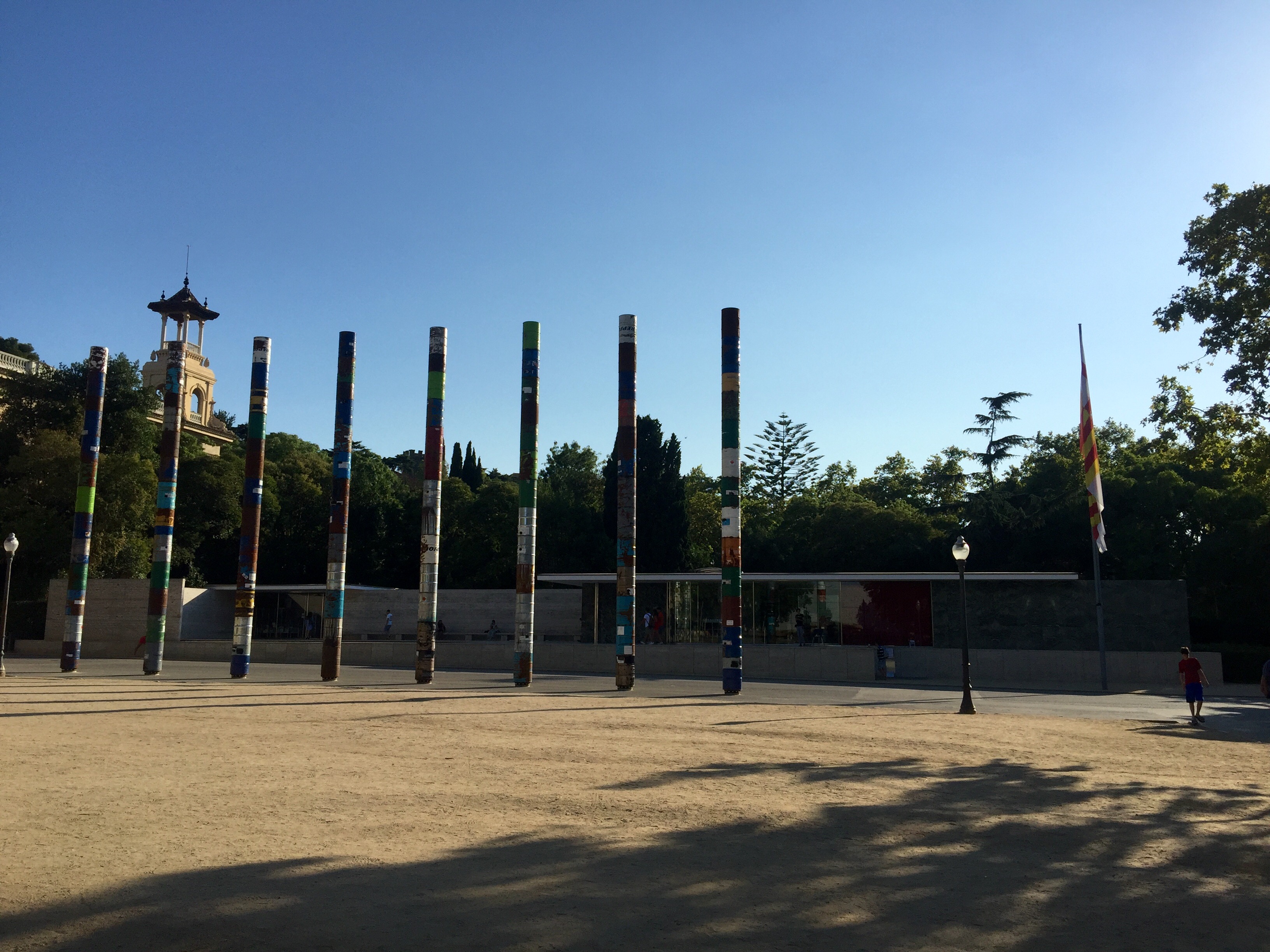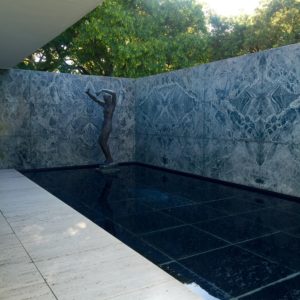

A visit to the Mies van der Rohe Pavilion is an experience well worth adding to your sightseeing checklist during your vacation in Barcelona. You may have even already walked past the pavilion without knowing, particularly if you’ve been to Plaza de España and wandered up the steps to the Museu Nacional d’Art de Catalunya. But if you pay attention on the way up, you’ll see an example of modern architecture that is in sharp contrast to some of Barcelona’s other architectural wonders. This structure is the Mies van der Rohe Pavilion, designed by German architect Ludwig Mies van der Rohe (1886-1969) as the German national pavilion for the 1929 Barcelona International Exhibition.
Related article: Best things to do around Montjuïc
Table of Contents


Photo by Karen Matthews
There’s an abundance of information available about the pavilion through the Fundació Mies van der Rohe, an organization set up in 1983 by the Barcelona City Hall. The organization describes the pavilion, which is made from glass, steel and different types of marble, as a symbol of architecture’s modern movement. It has been the object of studies by several generations of architects, perceived as a significant piece of work not only in Mies van der Rohe’s own career but also more widely across twentieth-century modern architecture. When the Barcelona International Exhibition ended in 1930, the pavilion was taken down and it wasn’t until the 1980s that discussion of the pavilion’s reconstruction began, based on its significance in modern architecture. It reopened on its original site in 1986 as a place for people to visit as well as a space for presentations and temporary exhibitions.
Related article: Barcelona Museum Pass – Articket BCN
Photo by Karen Matthews
For general visits, the pavilion is open from Monday to Sunday from 10:00 am to 8:00 pm. Tickets cost 5€ for the general public, 2.60€ for students and a there is 20% discount for people with BusTurístic, Barcelona Card or Barcelona City Tour access. Children under 16 can enter for free. A yearly pass for 8€ is also available as well as a special architecture tour for 90€.
Location: Carrer de Francesc Ferrer i Guàrdia, 7. The site can be easily accessed using any public transport service that stops at Plaza de España.
Barcelona’s Mediterranean climate, with increasingly warmer and longer summers, makes air conditioning an essential feature…
Maybe you're thinking about selling a property or you've just inherited one or more real…
Do you enjoy strolling among trees and plants, away from the hustle and bustle of…
If you are planning to move to Barcelona for a few months or permanently, one…
ShBarcelona establishes itself as the leading agency within the Apialia Eixample Group, reaffirming its position…
Are you going to visit Barcelona this 2025? The vibrant Catalan capital once again becomes…